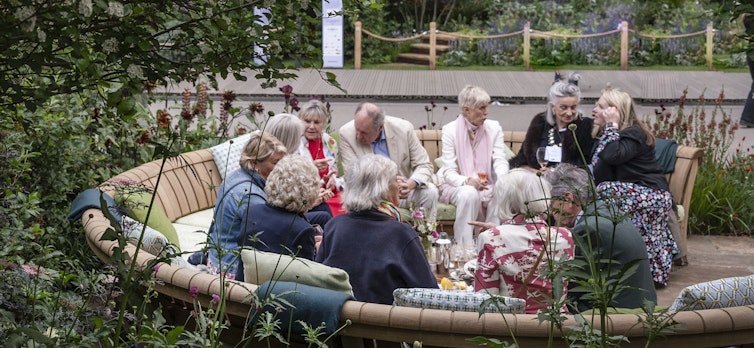How to Navigate The 5 Emotional Stages of Retirement

At the top level, retirement is likely to come with a spectrum of feelings: from excitement and relief to uncertainty, reinvention and ultimately, fulfilment. In this guide, we'll explore in more depth the emotional impacts of retirement, along with what to expect during each stage and how to navigate the stages with clarity, confidence, and optimism.
Here's what we'll cover:
- The emotional impact of retirement
- The five emotional stages of retirement
The Emotional Impact of Retirement
While retirement is a deeply personal experience, the emotional elements are well recognised in the field of retirement psychology. One of the most enduring and widely known models is the five emotional stages of retirement, introduced by sociologist Robert Atchley in his 1976 book The Sociology of Retirement.
But despite these stages often being repeated in lifestyle articles, they rarely come with attribution. Knowing that they are grounded in serious theory lends credibility, and provides you with a clear, thoughtful framework that can help to navigate each phase with self-awareness, compassion, and ease.
How Does Retirement Affect You Emotionally?
By definition, retirement marks the end of a chapter of life. Emotionally, it's often the beginning of something far more complex. Retirees often encounter questions about their identity, their role in relationships, and the whole rhythm of daily life. Many people reaching retirement discover that the shift is not just practical, but psychological. Even with forewarning, these feelings and sensations can be overwhelming.
It’s also important to recognise that retirement impacts people around the retiree. Partners may need to adjust to a new shared routine. Adult children may feel the need to become more involved with discussions about their parents' future care needs. Even close friends can feel the shift as routines and lifestyles change. That’s why open, empathetic conversations around expectations, hopes and emotional needs can make the transition smoother for everyone.
In the next section, we’ll explore the five emotional stages of retirement in more detail, offering a grounded, research-based framework that can help make sense of the journey ahead.
What Are the 5 Emotional Stages of Retirement?
Emotionally, it tends to unfold in the five stages explored in depth by Robert Atchley. These stages don’t necessarily follow a strict order or pace, but many find the journey familiar.
1. Pre-Retirement: The Anticipation Stage
This phase typically begins a few years before retirement, and is characterised by a variety of emotions. Excitement, nervousness, and big-picture thinking are often prominent as people imagine their post-career life without necessarily factoring in the realities or the logistical considerations.
As this stage continues, planning hopefully does begin to take place. Financial strategies are developed, lists of things the person wants to do begin to form, and questions about where to live or how to spend newly available time attract more and more attention.
This is an important stage for families: will children be involved in care decisions later on? Would downsizing now save stress later? Addressing such questions in a timely fashion fosters peace of mind all around.
2. The Honeymoon Stage
Many find that the first few weeks or months of retirement feel like a well-earned break. No more early alarms, no more packed diaries, and in their place are freedom, novelty, and the pleasure of finally having time to oneself.
In this period things like travelling, picking up new or long-lost hobbies, even enjoying long lunches with friends begin to feel fresh and expansive. People find themselves diving into long-put-off plans. Others may take advantage of having time to contribute to society through philanthropy, or begin taking up creative projects they couldn’t find time for previously. While others still just bask in the novelty of having the opportunity to spend time in a fully unstructured way.
And while this stage is often exhilarating, it's also important to begin imagining the longer-term rhythms of retirement, particularly if you're used to a highly structured lifestyle.
3. The Disenchantment Stage
Once the novelty fades, different questions begin to dominate. "What now?", for example. Or "what does my day look like? Who am I, without the structure work used to provide in my life?"
This stage can bring unexpected dips in mood or motivation, amplified by feelings of guilt or frustration that it should be an enjoyable time. Feelings of restlessness, boredom, or even sadness aren’t uncommon either. This can be the first time many people have paused long enough to reflect on unprocessed transitions that have occurred in their lives, whether from their career, important relationships, or elsewhere.
Foreknowledge and acknowledgment of feelings is crucial at this stage. The feelings are not a sign that retirement was a mistake: they're a reminder that routine or purpose serve value, and need to be respected.
Drawing on support networks, having open conversations, and looking for new ways to achieve routine and purpose can be very useful in exiting the disenchantment stage.
4. The Reorientation Stage
This is the phase where many people begin to settle into the idea of retirement, and more importantly, experiment with making it what they need it to become to fully enjoy it. Some take on part-time work, others dive into community projects, creative pursuits, or personal wellness goals. People often try a few things before finding what truly resonates. The process is trial-and-error, but in a good way, and with the space and resources to actually invest themselves into it.
Having the freedom to try things and grow is central to this stage. It’s also where the benefits of a supportive, engaging environment really begin to shine. Whether it’s an inspiring space, a helpful concierge team, or simply having access to others in the same phase of life, external support can make a big difference here.
5. The Stability and Resolution Stage
This is the stage where everything starts to fall into place. Routines take shape, friendships strengthen, and confidence grows as people see themselves successfully reimagining their lives. Calendars may begin to fill up faster than ever, this time not with obligations, but with activities and connections that bring genuine joy and meaning.
The emotional tone can shift away from negative feelings to contentment, balance, and possibility. Rather than looking back, many people in this stage begin looking forward to trips, achieving goals, and generally enjoying life on their own, considered terms.
It’s also a stage of growing assurance: knowing what you want, understanding your pace, and choosing how to spend your time with clarity is incredibly empowering. Many find themselves more engaged than ever, staying mentally and socially active and enjoying life.
Live Later Life the Right Way with Auriens
Where you live plays just as important a role as how you live, as you navigate these stages and build your new lifestyle. And whether you’re retired already or not, choosing somewhere to live that facilitates and enables enjoyment of this new phase of life is the greatest gift you can give yourself.
Because each emotional stage of retirement comes with its own joys and challenges, the right environment can help ease the transition, support emotional wellbeing, and turn retirement into something that feels vibrant and inspiring. At Auriens Chelsea, residents find more than just beautifully appointed apartments: they find a sense of place, purpose and possibility – whether they’re retired or not.
With one, two, and two-bedroom plus residences available to rent or purchase, and amenities including a spa, cinema, library, private dining, and 24-hour concierge, Auriens is later-life living reimagined. Our residents are growing, not winding down. They are artists, academics, entrepreneurs, and philanthropists, all having lived accomplished lives and planning to carry this forward into their next phase.
Whether you're preparing emotionally for retirement or already settling into it, Auriens provides the surroundings, support and spark to help you thrive in this next chapter. Explore how it works, or visit to see why Auriens might be the setting for your next great adventure.
Find Us
2 Dovehouse Street
London, SW3 6BF
020 4549 8000
Auriens is a member of ARCO, which represents Integrated Retirement Communities in Great Britain. As an ‘Approved Operator’, Auriens aims to comply at all times with the requirements of the ARCO Consumer Code.






